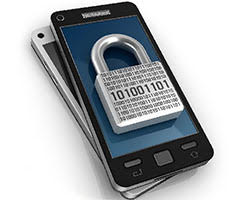FBI Investigating Texas Church Shooting Unable to Access Encrypted Data on Attacker's Phone
 There's no doubt that the recent mass-shooting at the First Baptist Church of Sutherland Springs, Texas was a horrific incident resulting in the loss of 25 people and an unborn child. The spark of investigations helmed by the FBI has hit a roadblock in their quest to obtain the data stored on the attacker's smartphone, which cannot be accessed due to encryption.
There's no doubt that the recent mass-shooting at the First Baptist Church of Sutherland Springs, Texas was a horrific incident resulting in the loss of 25 people and an unborn child. The spark of investigations helmed by the FBI has hit a roadblock in their quest to obtain the data stored on the attacker's smartphone, which cannot be accessed due to encryption.
In the past, law enforcement agencies attempted to crack the iPhone belonging to the San Bernardino attacker, which was followed up with backlash and resistance from Apple that resulted in mass hysteria surrounding a controversy of protecting the data of all iPhone users. While the FBI looked to outside hacker sources for breaking into the iPhone of the attacker, they were eventually successful in obtaining the data, but it ended up costing them upwards of $900,000.
When it comes to breaking into the phone belonging to the Texas Church shooter's phone, which is an unknown phone model at this time, the FBI hasn't had much success. The reason for the FBI not being able to access data on the phone is mostly due to encryption where new-generation smartphones utilize fortified encryption that is nearly impossible to defeat.
In today's highly socialized and data-driven world, information security and how certain companies protect the data of their customers is a hot topic. Apple has been at the forefront of being one of the few to speak out against allowing access to a phone no matter if it is a matter of national security as it appeared to be in the San Bernardino attack situation. However, with the number of outside sources and hackers willing to take on a challenge to break into an encrypted device, there's always a looming chance of the FBI cracking open the phone belonging to the Texas church shooting attacker.
In retrospect of what the FBI is willing to do to crack open a phone belonging to a mass shooting attacker, there comes a price that isn't cheap to pay. With the FBI paying nearly $1 million to an undisclosed hacker to break into the San Bernardino attacker's iPhone, the price that the FBI could rack up in an attempt to crack the Texas church shooter's phone could be even higher.
Ultimately, the FBI and hackers who have recently sought to crack the Texas church shooter's phone lack the necessary resources to unlock the device. File encryption has long been a method for protecting data to keep virtually all data thieves from accessing a protected entity. In today's vast landscape of nearly endless data, file encryption has become an essential part of general security in a data-driven world. Even hackers utilize file encryption methods in cases of aggressive ransomware attacks leaving victimized users no choice but to pay up a demanded ransom.
The FBI will further their investigations on recent mass shootings, and at the end of their quest for additional data on deranged attackers, cracking open encrypted devices will be at the top of their to-do list. If their data encryption cracking efforts are proven successful some capacity, we can only hope that the methods used are kept private and never shared with outsiders or anyone in the general public, or we could face severe repercussions in making other encrypted data vulnerable to being exploited. Such a case is exactly why Apple would not break into the San Bernardino attacker's iPhone, in fear of the coding used to crack the encryption could be used in other cases at the hands of relentless hackers.